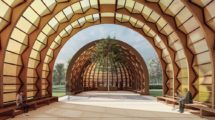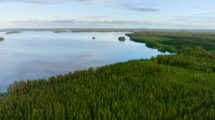At a crucial moment for the future of forests, the authorities of the German state of Nordrhein-Westfalen signed on 11 February 2025 the "Forest Pact 2.0", an ambitious agreement bringing together forest owners, the forestry sector and environmental organizations. This pact is an update of the original agreement from 2019 and comes in response to the major challenges facing the region's forests.
In recent years, around 130,000 hectares of forest in North Rhine-Westphalia have been severely affected by storms, prolonged droughts and massive pest infestations. Only last year has the situation improved slightly. Forests cover about a third of the state's surface area, amounting to 950,000 hectares, of which 63% are private forests - the highest percentage of all German Länder.
"It is our major task for the future to strengthen the forest with all its diverse protective and utilization functions. Transforming monocultures into diverse mixed forests is an essential element in this," said Hendrik Wüst, Prime Minister of the state.
The new pact puts particular emphasis on:
- Adapting forests to climate change
- Biodiversity conservation
- Promoting the use of wood in construction
- Protection against forest fires
- Developing a sustainable forestry and wood processing sector
An important aspect to mention is the economic impact of the forest sector in the region. The forestry and timber industry in North Rhine-Westphalia employs around 154,000 people and generates an annual turnover of more than €40 billion.
"The Pact demonstrates a broad social consensus for multifunctional forestry in the context of climate change and creates a solid basis for the consistent promotion of concrete measures", explained Christoph Ewers, Chairman of the NRW Forestry Committee.
For the construction sector, Minister Ina Scharrenbach underlined that "wood is one of the oldest building materials in the world and is currently experiencing a renaissance in the construction sector", noting that the local government is actively supporting wooden construction through various funding programs.
This initiative demonstrates that the sustainable development of the forest sector requires an integrated approach, combining environmental protection with economic development and involving all relevant stakeholders.




































Add comment